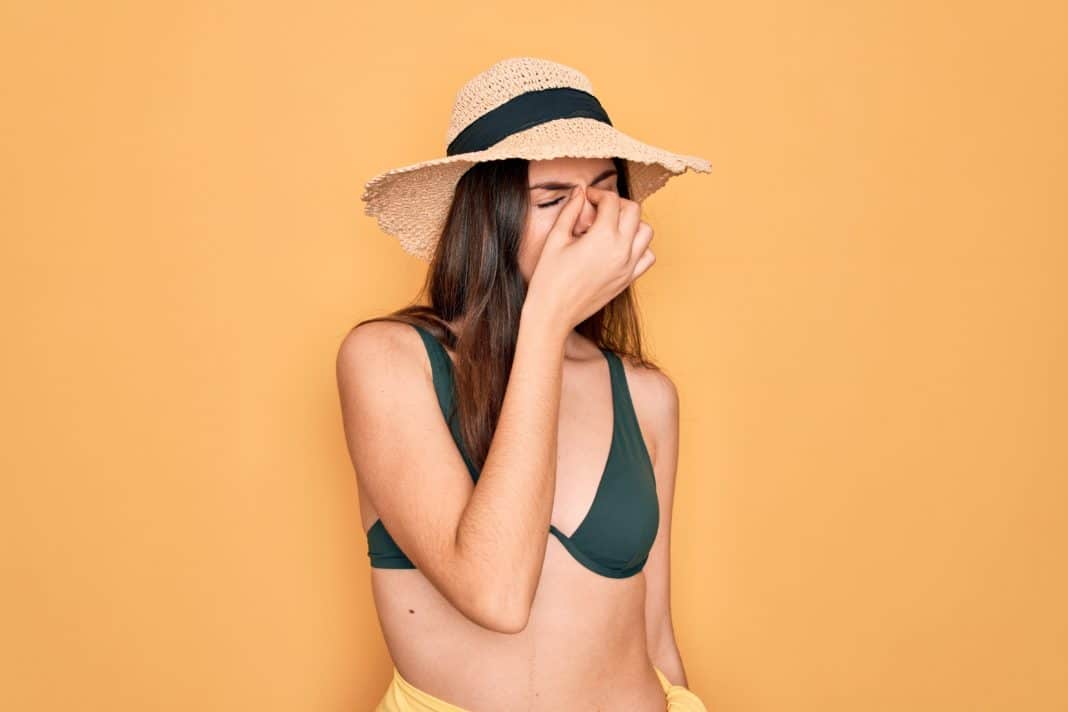AS the hot summer continues, the experts from Specsavers Ópticas are advising everyone to take care and protect their eyes against damage from UV rays. UV radiation from the sun has been identified as a leading risk factor for developing cataracts[1], as well as being linked to a host of eye problems later in life.[2]
Lisa James from Specsavers Ópticas Guardamar explains, ‘While cataracts is a common age-related eye condition, there are several steps you can take to reduce your risk of developing them. These include quitting smoking, keeping chronic health conditions such as diabetes and high blood pressure under control, preventing eye injury by wearing protective eye wear and protecting your eyes from the sun. Eating a healthy diet, rich in antioxidants, such as vitamins C and E, may also help prevent cataracts. As cataracts is the leading cause of blindness worldwide, it’s wise to correctly protect your eyes from the sun, especially in a sunny place like Spain.’
How to best protect your eyes from the sun this summer?
- Wear sunglasses
Wear sunglasses that provide 100% UV protection whenever you go outside during the day, even if it is cloudy or overcast.
Look for sunglasses that have a label or sticker indicating they provide 100% protection against both UVA and UVB radiation.
Unfortunately, not all sunglasses provide sufficient protection from damaging UV rays, so make sure your sunglasses conform with agreed safety standards. Wearing sunglasses that do not meet the safety standards, especially those with dark lenses, is more damaging to the eyes than not wearing any at all. Dark lenses make the pupil dilate and let in more harmful rays, without the glasses the eyes would naturally squint to help keep the rays out.
If you are not sure whether your sunglasses are protecting you as they should, Specsavers Ópticas in Javea, Calpe, Benidorm, Guardamar and Torrevieja on the Costa Blanca offer a free UV checking service in store.
- Choose the right sunglasses and complement with a hat
Sunglasses with large, wraparound frames that cover more of the eyes and the surrounding areas provide better protection from UV radiation than smaller frames. Polarised lenses can also reduce glare and provide better vision in bright sunlight.
A wide-brimmed hat can provide additional protection from UV radiation, particularly for the eyes and the skin around the eyes.
- Avoid peak sunlight hours and seek shade where possible
Avoid being outdoors during peak sunlight hours, typically between 10 am and 2 pm, when the sun’s rays are the strongest. Seek shade under trees or other structures when outdoors during peak sunlight hours.
- Be aware of reflective surfaces
Water and sand can reflect UV radiation and increase your exposure, so you need to take extra care at the beach and the pool. Make sure children as well as adults are wearing sunglasses and hats to protect their eyes.
Chantelle Hayward from Specsavers Ópticas Calpe explains, ‘A cataract is a common eye condition in which the lens inside the eye loses its transparency. Symptoms include blurred, misty or cloudy vision, difficulty seeing in dim or very bright light and finding bright lights uncomfortable to look at. You may also have double vision, see halos around bright lights and colours may look faded or have a yellow or brown tinge.
‘If you are experiencing any of these symptoms, book in for a comprehensive eye test to check the health of your eye. Your optometrist will assess your vision and overall eye health and if they think you have cataracts, they can refer you to an eye specialist for diagnosis and treatment.
‘In some cases, cataracts may not need to be treated immediately, particularly if they are not causing significant vision problems. In these cases, your eye doctor may monitor your condition and recommend surgery when the cataracts start to affect your vision.
‘Cataract surgery involves removing the cloudy lens and replacing it with an artificial intraocular lens (IOL). Cataract surgery is a safe and commonly performed procedure, with a high success rate and low risk of complications.’
Comprehensive eye tests using the latest technology are free at Specsavers Ópticas. Visit www.specsavers.es to find your nearest store and book an eye test.
[1] https://www.allaboutvision.com/conditions/cataracts.htm
[2] https://preventblindness.org/how-uv-rays-damage-the-eyes/





